The great state of Michigan is full of natural wonders to explore. Whether you are backpacking along the Pictured Rocks National Lakeshore, car camping and dune climbing at Warren Dunes State Park, or enjoying an overnight canoe trip on the Au Sable River, here are some tips to ensure your adventures are safe and enjoyable for the whole family:
TIP #1: Know the area you are visiting and have a plan.
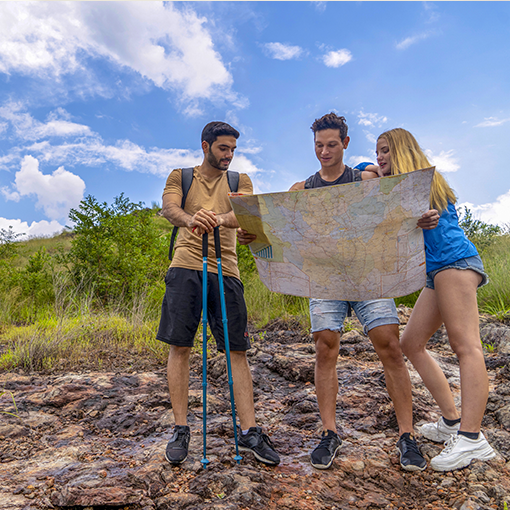 |
Before you go, take some time to learn about the area including the weather, terrain, and risks. A simple web search will help you with this. Park Rangers are also an amazing resource to tap into. Carefully plan your adventure and notify a trusted friend of where you are going, when you expect to return, and when the friend should consider you “overdue” and make a report. |
TIP #2: Protect yourself from the elements, injury & insects.
| Pack shelter & clothing that are suitable for the expected weather conditions; this includes a tent/hammock with a rain fly, temperature appropriate sleeping bag, rain jacket, wide-brimmed hat, sunglasses, etc. You should also pack sun block (minimum SPF 30) and insect repellant (20-30% DEET) to deter mosquitoes and ticks. | 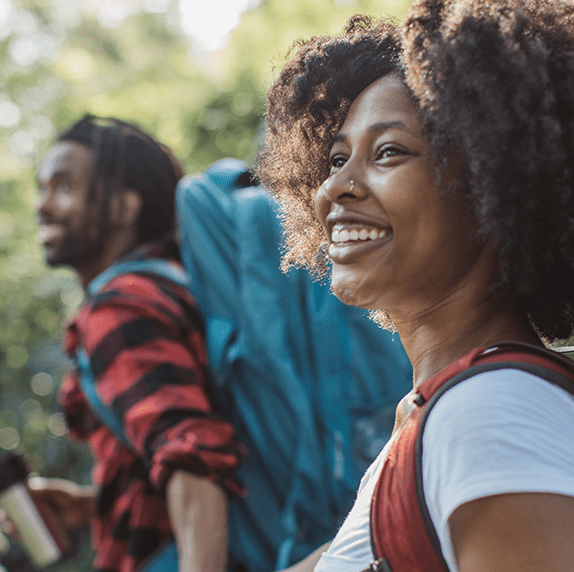 |
Always carry a first aid kit & a safety whistle with you. First aid kits geared toward outdoor adventures can be found at most recreation stores and are often scalable to the activity and duration. Plan to exercise and build strength and endurance before your trip to decrease injuries.
TIP #3: Give wildlife their space.
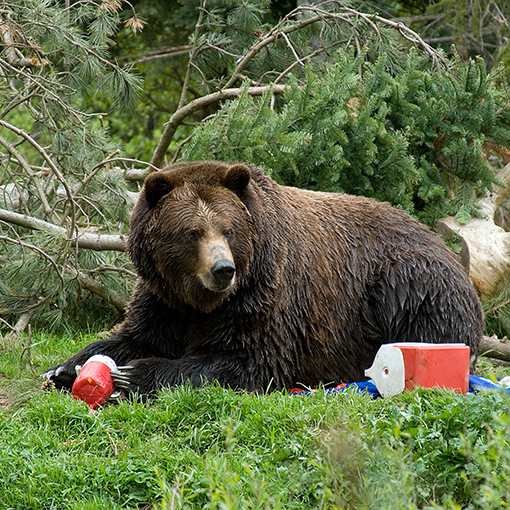 |
Michigan is home to bears, moose, porcupines, cougars, coyotes, and wolves. When viewing wildlife, stay back at least 25 yards for most animals and at least 100 yards for bear and wolves. If you are in bear country, carry bear spray & be a noisy hiker by talking or singing with your hiking buddy. |
Making noise lets animals know you are nearby so they can move along. If you accidentally find yourself too close to an animal, know how to handle the encounter correctly. Resources for how to handle wildlife encounters can be found on the NPS.gov website.
TIP #4: Keep your food and water safe.
| Always carry drinking water with you, even on short hikes. Water from lakes, rivers, or creeks must be purified before you drink it. There are many ways to purify water including boiling, tablets, squeeze filters, gravity filters, and UV light treatment. Store and prepare food AWAY from your sleeping area. | 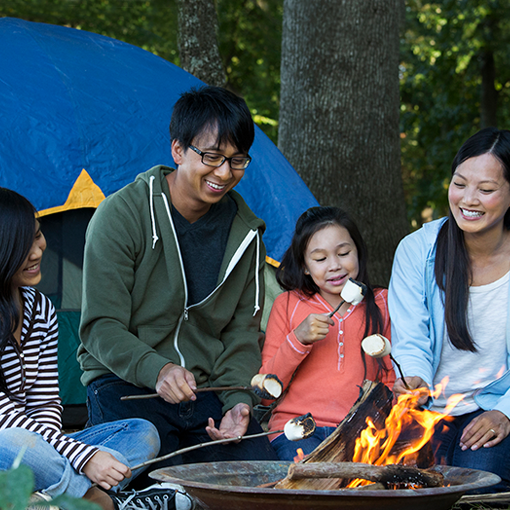 |
Keep your campsite clean and keep any food or scented personal care items out of your tent. When car camping, store food in your vehicle. When camping in the backcountry, hang your food approximately 15 feet high and 100 yards from your sleeping area.
TIP #5: Fire Safety
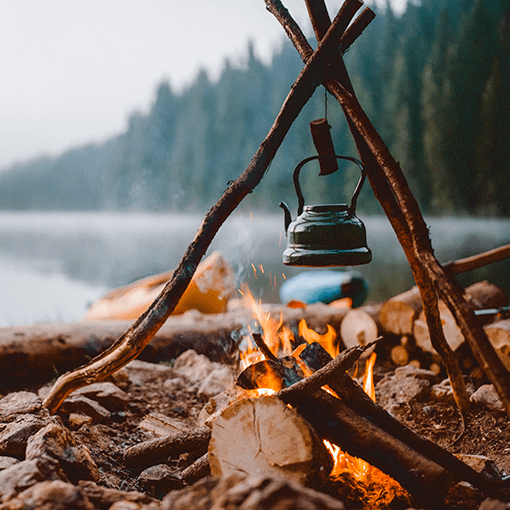 |
Keep fires contained in a well-established fire ring, keep a bucket of water nearby, and NEVER attempt to start a fire with gasoline. Fully extinguish your fire before going to sleep or leaving your campsite for the day. Discuss fire safety with children and set firm boundaries about running & horseplay near campfires. |
Finally, whenever you are outdoors and enjoying nature, be sure to follow the 7 Leave No Trace Principles and leave nature better than you found it.
Find a Provider Near You.
We offer more ways to care for you, your family and our community. Whether you need routine care, treatment for an injury or chronic condition, our providers are here for you.





